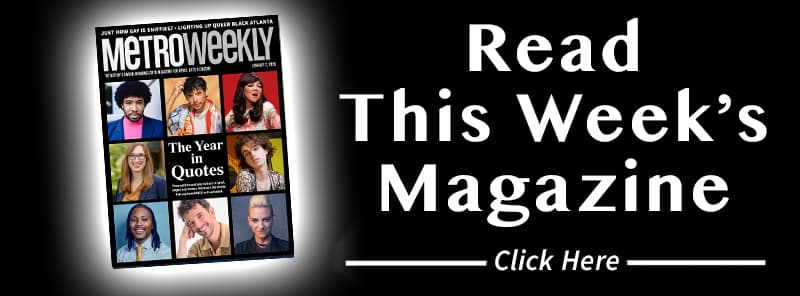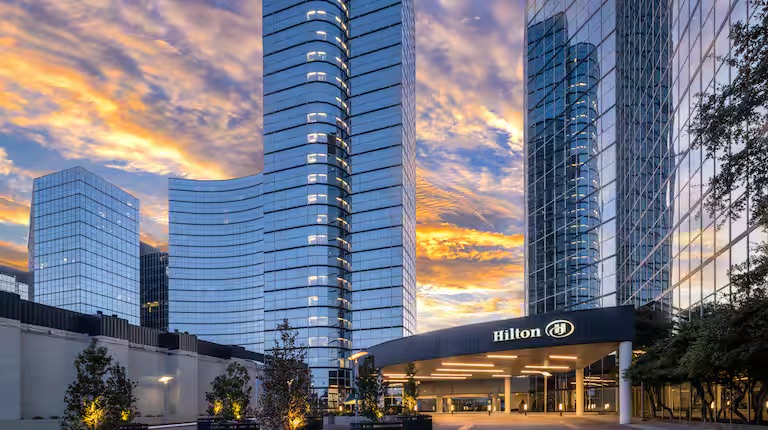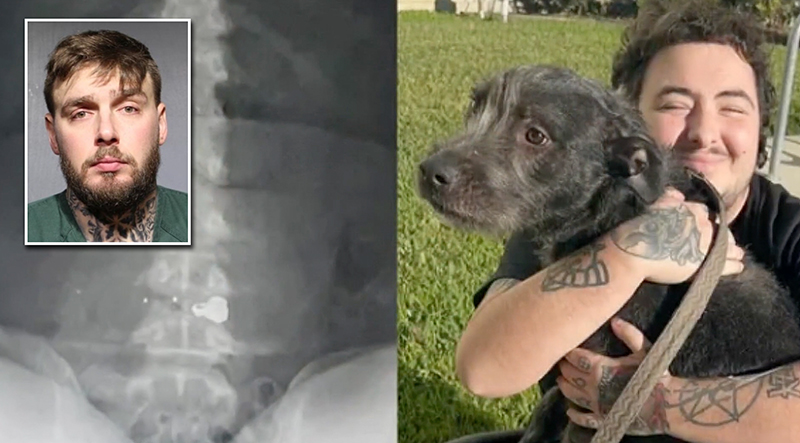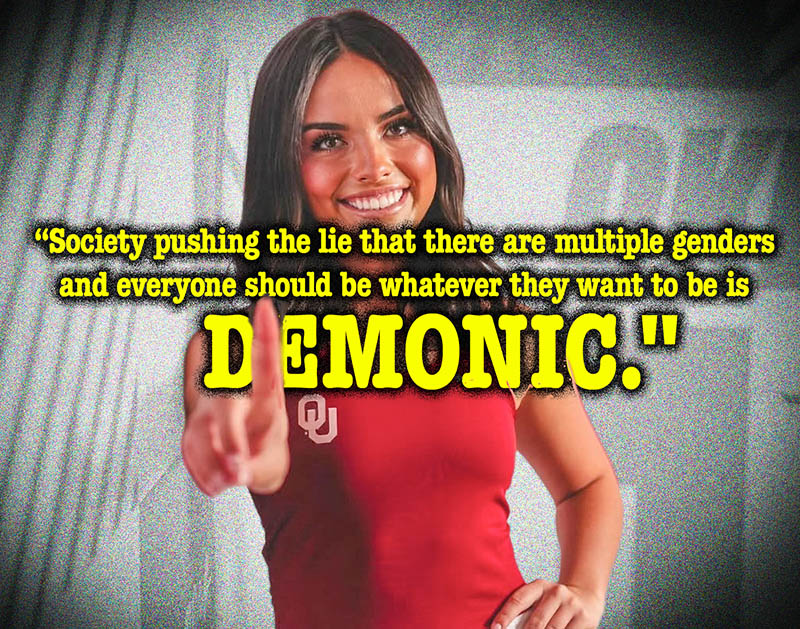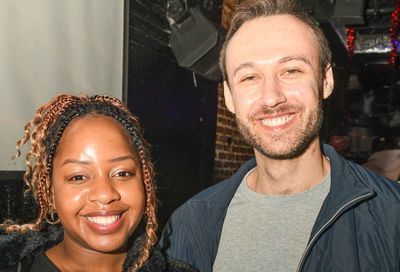MPD Fields Transgender Crime Questions
News media, community activists hound MPD on handling of recent crimes
Metropolitan Police Department officials held a news conference Sept. 12 intended to address a shooting and the death of an unidentified person, but were bombarded with questions about the recent wave of crimes targeting members of the transgender community, the department’s handling of LGBT issues and whether the MPD has an internal ”culture of transphobia.”
Assistant Police Chief Peter J. Newsham fielded questions from reporters on the steps of the Police Department’s headquarters regarding accusations from members of the LGBT community, and specifically transgender activists, that the MPD has been slow to respond and unsuccessful in solving and prosecuting anti-LGBT crimes.
The news conference took place less than 12 hours after the shooting of a transgender woman in Southeast D.C.
According to a police incident report, the transgender woman was shot by an acquaintance in the 2300 block of Savannah Street SE. She drove herself to the MPD’s Seventh District Station, where she reported the shooting to police. The woman was taken to George Washington Hospital, where she was treated for a gunshot wound to the neck. Newsham said the victim was in stable condition.
At the time of the press conference, Newsham told reporters police had not arrested the suspect identified by the victim. On Sept. 13, police announced that 20-year-old Darryl Willard of Northeast Washington had surrendered at First District Police Headquarters and was arrested. Willard is being charged with ”assault with intent to kill while armed.”
The Savannah Street shooting is the latest in a string of shootings, assaults, robberies and murders committed against members of the transgender community in the District that dates back to mid-July, when 23-year-old Lashai Mclean, a transgender woman, was shot and killed in the 6100 block of Dix Street NE. Since then, there have been at least three different shootings and at least one attempted robbery, as well as other assaults, aimed at transgender individuals, mostly women. Newsham said the cases do not appear to be related to one another.
Following an update on the Savannah Street shooting, reporters asked Newsham if the MPD was failing to aggressively pursue cases involving transgender victims. Newsham pushed back, saying, ”We give every single crime in the District of Columbia the same attention, and we’re very serious about closing all cases.”
When asked about a ratio disparity between unsolved or ”open” cases involving members of the transgender community and those involving the general public, Newsham said there have only been two murders in the past few years and that such a comparison cannot be made.
”With regards to the homicides that we’ve had … fortunately, we’ve not had that many,” he said. ”If you want to say that there are more open homicides of transgenders than there are of others, of everyone else … I don’t think you can statistically compare, because the numbers of the transgenders are statistically so much smaller than the numbers of others.”
Newsham was also asked about the Police Department’s crackdown on prostitution, which activists say disproportionately targets transgender women who may face discriminatory hiring practices. But Newsham said MPD’s enforcement is not gender-based and does not specifically target transgender women. He also pushed back against allegations that there is a ”culture of transphobia” within the ranks of the Police Department.
”The MPD is like any other sector of the population,” Newsham said. ”We have our concerns here, but as an agency we will not tolerate that from our members. We’ve asked the transgender community, if they are treated inappropriately, to bring it to our attention and we will deal with that. We are not going to tolerate that as a Police Department.”
Moreover, he said, Chief Cathy Lanier has gone out of her way to reach out to the transgender community and work closely with its members to solve crimes affecting them, one of many positive developments that get overshadowed by negative news coverage.
When asked whether reconstituting the Gay and Lesbian Liaison Unit (GLLU) as it had previously existed would help MPD deal more effectively with anti-LGBT crimes, Newsham answered only indirectly, saying Lanier’s vision is to have all officers trained to be able to interact with members of the LGBT community.
The GLLU was originally started under former Police Chief Charles Ramsey, and structured as a full-time unit of officers who specifically responded to crimes against the LGBT community. In 2009, it was restructured and decentralized with the aim of training regular patrol officers to become affiliate members of GLLU in their respective police districts, rather than maintaining a core GLLU force.
Ruby Corado, a local transgender activist, shook her head slightly as Newsham spoke. When given a chance to speak after Newsham, she was highly critical of MPD.
”I think it is important to hear that the communication between the Police Department and the transgender community and, I would say, the LGBT community in general, is not at the best of its times,” Corado said.
Corado and fellow activist Earline Budd contrasted the current relationship between the transgender community and the GLLU with the relationship between the two sides prior to its restructuring.
”It is an office that was productive at the time. And for the time it existed in full force, had a better communication with us,” Corado said of the GLLU. ”It hasn’t been actually until recent media coverage, and a meeting with the City Council, that the chief started communicating with us again. And I want to say thank you, because that is something we had lost and now we’ve recovered.”
”I still think, at some point, the city should revisit going back to what we used to have,” Budd said. ”I think it was more of a reachable, approachable team of officers. I think now that it’s so broad, it’s not the same.”
Muddying the waters in that relationship is the difficulty that police officers often face when classifying the crimes they respond to, such as the recent death of an unidentified person in the 2600 block of 11th Street NW on Sept. 10.
Initially, members of the transgender community had been contacted by police in order to identify the deceased, who was found wearing makeup, a black and purple jacket, a gray shirt that had been cut like a camisole with a plunging neckline and slits on the sides, blue shorts and carrying high-heel shoes. However, two days later, Newsham told reporters police did not have enough information to classify the dead person as transgender.
With the victim still unidentified at the time of the conference, Newsham distributed a flier to the press with a picture of the deceased, whom he described as a ”Hispanic or Middle Eastern male, approximately between the ages of 25 and 30 … 5 foot, 8 inches with dark, wavy hair about 3 inches long.”
Newsham said police hoped the publication of the photo would help them identify the victim. And on the evening of Sept. 13, police did, naming Gaurav Gopalan, 35, of Northwest Washington.
Metro Weekly received an email earlier that day from a source claiming to know the victim, who said the deceased did not identify as a transgender woman. That source did not reply to follow-up inquiries by press time.
Meanwhile, as efforts are made in D.C. to stop attacks on the transgender community, an April 2011 attack in Baltimore County found some measure of closure Sept. 13 as Teonna Monae Brown, 19, was sentenced to five years in prison for attacking Chrissy Lee Polis, a transgender woman, in a Rosedale, Md., McDonald’s, according to The Baltimore Sun. That beating was videotaped and broadcast widely, drawing national attention to crimes against transgender people. A second attacker, a 14-year-old girl, pleaded guilty and was committed to a juvenile detention facility in July.
Support Metro Weekly’s Journalism
These are challenging times for news organizations. And yet it’s crucial we stay active and provide vital resources and information to both our local readers and the world. So won’t you please take a moment and consider supporting Metro Weekly with a membership? For as little as $5 a month, you can help ensure Metro Weekly magazine and MetroWeekly.com remain free, viable resources as we provide the best, most diverse, culturally-resonant LGBTQ coverage in both the D.C. region and around the world. Memberships come with exclusive perks and discounts, your own personal digital delivery of each week’s magazine (and an archive), access to our Member's Lounge when it launches this fall, and exclusive members-only items like Metro Weekly Membership Mugs and Tote Bags! Check out all our membership levels here and please join us today!







